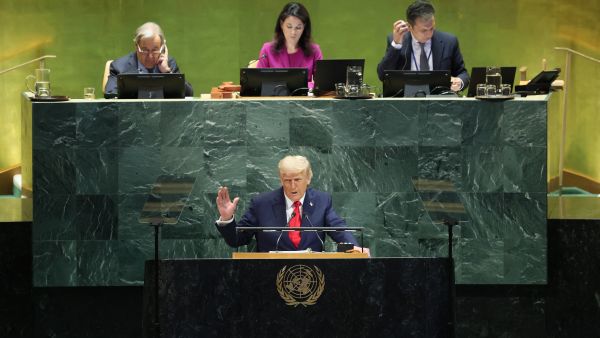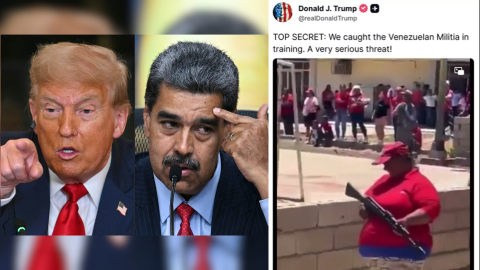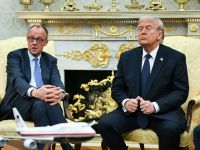ALBAWABA- U.S. President Donald Trump delivered a 57-minute address to the United Nations General Assembly on September 23, 2025, using the UN’s 80th anniversary as a stage to promote his “America First” vision, tout domestic achievements, and criticize global institutions and allies.
The speech, delivered from a printed script, mixed self-congratulation with grievances and bold foreign policy assertions, drawing a divided response from world leaders.
Opening with a blistering critique of the UN, Trump dismissed it as a “relic of a decayed world order” undermined by “globalist institutions” that fail on migration, trade, and climate.
He defended U.S. withdrawals from the Human Rights Council and WHO, along with funding cuts, claiming America was stronger by rejecting “failed globalism” in favor of sovereignty.
Pivoting to the economy, Trump declared that his administration had “defeated inflation,” slashed mortgage rates, lowered food and energy prices, and unlocked $17 trillion in investment within eight months. He credited these gains to an unapologetically nationalist agenda, framing U.S. economic strength as proof of restored global leadership.
Trump also sought to recast himself as a peacemaker, boasting that he had ended “seven wars in seven months” through personal diplomacy, including ceasefires between Armenia and Azerbaijan, Rwanda and the DRC, and Thailand and Cambodia.
He contrasted these claims with what he called the failures of his predecessors, hinting at Nobel Peace Prize ambitions. At the same time, he pointed to U.S. military strikes on Venezuelan boats and Iranian nuclear facilities as examples of deterrence.
On current conflicts, Trump said Russia’s war in Ukraine could be ended “in one day” through his ties with Presidents Putin and Zelenskyy, while hinting at new tariffs on Moscow if allies, especially Britain, did not boost energy independence.
Turning to Gaza, he described the war between Israel and Hamas as a “disaster that must be stopped immediately” but reaffirmed U.S. backing of Israel, rejecting growing international recognition of a Palestinian state as “just more talk.”
The president also delivered sharp words for European allies, accusing them of weak defense spending, high taxes on energy production, and overreliance on U.S. security guarantees. He praised U.S. traditions of free speech and religious liberty as global models, while framing migration controls and reciprocal trade deals as cornerstones of American leadership.
Reactions inside the General Assembly chamber were mixed- applause from U.S. partners, visible unease from European delegations, and quiet resistance from others who see Washington drifting from multilateralism.
Trump’s speech underscored a sharp U.S. pivot toward unilateralism and transactional diplomacy, relying on tariffs, military strikes, and bilateral relationships while sidelining international institutions.
As the UN marks its 80th year, Trump’s message signaled both the fragility of the post-war order and a potential realignment of global power, with Washington pursuing exceptionalism over collective security, even at the risk of further isolating itself.











